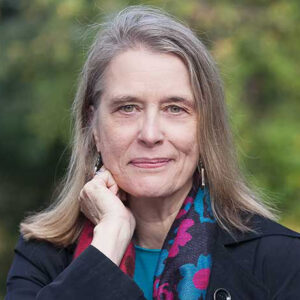Sam, you must be turning in your grave.
Twenty-three years of effort by you to honor the Bard and the end result is well-intentioned but mediocre theatre. In sooth, at least it’s being staged in a historically accurate reconstruction of William Shakespeare’s Globe Theatre, which was your dream.
The new Globe Theatre (1997) sits near hallowed ground close to the Thames where the original Globe was built in 1599. The reconstructed Globe Theatre was built with meticulous attention to historical detail including a thatched roof, (a real achievement since thatch was outlawed after the Great Fire in 1666), the use of green oak and timber joints fixed with wooden pegs.
This reconstructed theatre was Sam’s passion project but he wouldn’t live to see it completed, dying just a few months before it was finished. A bronze plaque on the building commemorates his efforts and a theatre in the complex is named after him.
Sam was an unlikely champion for this project as an expatriate American living in London. His earliest link with the Bard would have been when he performed Shakespeare in an approximate reconstruction of the Globe Theatre at the Great Lakes’ World Fair in Cleveland, Ohio, in 1936. After a moderately successful career, he was compelled to leave the United States in the wake of the 1950s political plague known as McCarthyism. In England, he would continue his career as an actor and director.
When I moved to London in the late 1970s, I worked as Sam’s administrative assistant in a small brick building situated next to a temporary outdoor theatre where Shakespeare’s plays were being performed, weather and funding permitting. At this time, he was struggling to keep the project afloat with small grants and other revenue. His challenge was to look successful and keep the project viable. This required bravado and a great deal of persistence on his part.
He obtained a small grant to do a regional Shakespearian film tour. A colleague, and soon to become a close friend in misadventure, and I packed a dilapidated film projector and a celluloid copy of Laurence Olivier’s Henry V (1944) to screen at various small community halls outside of London. We didn’t have a budget and my friend’s old car was our means of transport. The tour ended when the finicky projector overheated and we watched in horror as Olivier’s face melted on the screen like a piece of blackened marshmallow being consumed by hot coals.
So because of this experience and other memories of Sam’s larger-than-life character, I feel like an alumni of the Sam Wanamaker School for Shakespeare Studies.
So imagine my deep disappointment when I returned recently to London to see a performance staged of Shakespeare’s Anthony and Cleopatra in the reconstructed theatre that was awkwardly presented and unresolved as a theatre piece. The production was an experiment to combine deaf actors using British sign language with speaking actors.
It would take an entire essay to discuss whether Shakespeare’s verse can be effectively translated into sign language. Based upon what I observed is that the beauty of Shakespearian language cannot be effectively communicated with deaf performers using sign language. Sorry.
Cleopatra and her entourage were vigorously signing with the other performers speaking their lines. There were electronic boards placed around the theatre with the phrases that were being signed. Unfortunately, our seated positions meant that we could not see a screen with a complete phrase without turning our heads away from the stage. The other screens were positioned in such a way that we could only see partial phrases. I could sympathize with the weakness in the conceit of combining sign language and spoken word but what I could not tolerate was the basic lack of theatrical sophistication where we were unable to see an entire screen without turning their heads away from the stage. Really? We paid full price for an obstructed view.
We left at the first intermission. There was a steady stream of other dissatisfied audience members leaving as well. This is only the second time that I have walked out of a theatre production. Sam and Shakespeare would be shaking their heads in disbelief. You can reconstruct a theatre but it doesn’t guarantee a performance which will have the same solid construction.
